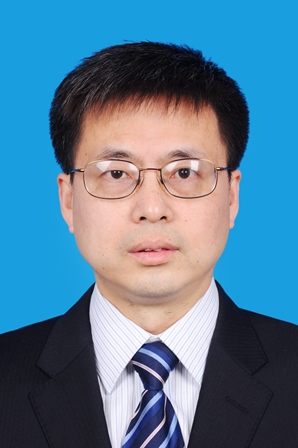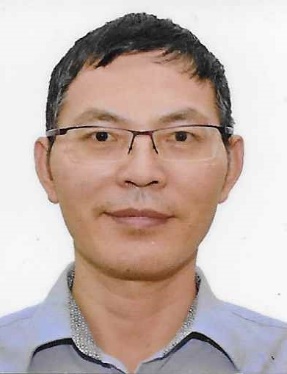
| Prof. Hassan BevraniUniversity of Kurdistan, Iran(IEEE Fellow)Title:Microgrid Control Systems: A Generalized Overall View Abstract: The term of Microgrid Control refers to the application of control theorems and relevant technologies for stabilizing and enhancing the performance of microgrids in real-world operations, following various disturbances such as the loss of distribution of generators (DGs) and load units. This issue encompasses not only the internal control performance of microgrids and the connection/disconnection procedures to limit negative dynamic impacts on the power network but also grid support functionalities that enhance the overall operation of distribution networks. Some of the most critical microgrid control issues include active and reactive power sharing, synchronization methods, voltage and frequency regulation services, emergency control, cybersecurity, power control and energy management. Recent findings in confirm that the current well-known hierarchical 3-layer control scheme which is initially inspired by the conventional power system frequency control layers is not sufficient for classifying different microgrid control issues and covering all required control loops. This speech, in addition of presenting a critical review, presents a generalized 4-layer hierarchical control framework to address the existing shortcomings. |
Prof. Jizhong ZhuSouth China University of Technology, China(IEEE Fellow)Title: Robust Economic Dispatch of Micro-energy Networks Considering the Uncertainties of Loads and Photovoltaic Output Abstract: A micro-energy network (MEN) integrates distributed energy systems, multiple loads, and control devices, and helps to achieve the flexibility and economy of various energy networks operation through multi-energy co-generation and co-sourcing. However, the uncertainties of loads and renewable energy generation bring out huge challenges for MENs. This paper establishes a two-stage robust optimal economic dispatch strategy for the MEN under grid-connected and is-landed operation modes. The topology of the MEN and the energy flow cou-pling relations are described based on the energy hub coupling matrix, and the uncertainty sets are presented to characterize the fluctuation of loads and photo-voltaic power output. Moreover, the linear decision rules and pairwise theory are applied to the solution of the proposed strategy. The case study validates the effectiveness of the proposed strategy on the modified IEEE test system with the optimal operation cost saving, which could significantly improve the flexibility, economy, and safety of the MEN. |
|
| Prof. Buxiang ZhouSichuan University, ChinaTitle:Full-Timescale Simulation of Off-Grid Wind and PV Power-to-Hydrogen Systems Abstract: Wind and solar energy-based renewable power-to-hydrogen (P2H) production is recognized as an emerging technological approach for large-scale decarbonization of the power, chemical, and other industries. Compared to grid-connected systems, the off-grid ReP2H offers advantages such as lower electricity costs, no need for grid integration-related investments, and operational flexibility. However, due to the lack of support from the external grid, the fluctuation of wind and solar generation may cause instant instability and long-term mismatch between the sources and loads. To address these challenges, we investigate the following topics: 1) Developing a comprehensive electromagnetic transient simulation model for off-grid P2H systems; 2) Establishing a hierarchical regulatory control framework that spans timescales from subseconds to days and months; 3) conducting techno-economic analyses to assess the levelized cost of off-grid green hydrogen production under various resource conditions. These endeavors are expected to provide a viable technological pathway for green hydrogen production and serve as references for engineering applications. |
Prof. Yinquan YuEast China jiaotong university, China(IEEE Senior Member)Title:Research on demagnetization mechanism of PM motors and optimization design methods to reduce its’ risk Abstract:The PM motor structure has the advantages of high power density, wide speed range, and compact structure, which are widely used in fields such as aviation, aerospace, home appliances, and new energy vehicles. However, due to its unique demagnetization fault, it has not been widely adopted under some extreme working conditions such as traction motor for high-speed train. This report will explore the inherent mechanism of its unique demagnetization characteristics. At the same time, to maintain electromagnetic torque while effectively reducing cogging torque and power consumption, different optimization methods are explored to optimize the motor topology. Therefore, it can effectively reduce the risk of demagnetization of magnets in motor due to extreme vibration level and high temperature rise. |
|
| Prof. Jianguo ZhuUniversity of Sydney, AustraliaTitle:Data Driven Coordination of MGs and VPPs for High Percentage Integration of DERs in Smart Grids Abstract: Clean renewable distributed energy resources (DERs), such as wind and photovoltaic (PV) power generation, are being installed worldwide to reduce the carbon emissions generated by fossil fuel power plants. Their intermittencies hinder their integration into the power grids. Various technologies, such as energy storage systems (ESS) and microgrids (MGs), are developed for effective grid integration of DERs. However, achieving a high percentage installation and grid integration of DERs remains a challenge primarily because of the low feed-in tariffs. To resolve the issue, virtual power plants (VPPs) are introduced to aggregate and coordinate large numbers of DERs, ESS, and MGs. Recognising the potential business opportunity, many power retailers have established centralised VPPs to increase DER installation and financial resilience. While these VPPs can provide adequate buffers to power price volatility (as demonstrated in the recent power price surge) and improve the distribution network resilience, the centralised coordination fails to provide sufficient incentives to attract the enthusiastic participation of DER, ESS and microgrid owners. This talk presents our vision and recent studies of VPPs for high percentage integration of DERs in smart grids, including machine-learning-based energy management and internal market operations. |




